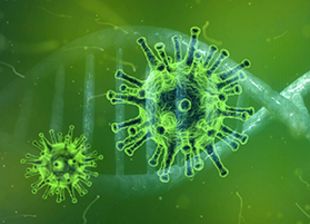Although a series of single-case studies already exists, there are no observational studies with a greater number of subjects that investigate an interrelationship between vaccination against COVID-19 and diabetes risk. Prof. Bernd Kowall of the Institute of Medical Informatics, Biometrics and Epidemiology at the University Hospital Essen and the Faculty of Medicine of the University of Duisburg-Essen, Prof. Karel Kostev of the research company IQVIA in Frankfurt, and study leader Prof. Wolfgang Rathmann of the Institute for Biometrics and Epidemiology at the German Diabetes Center in Düsseldorf analyzed a database of a representative selection of a total of 970 physicians' practices throughout Germany that stores anonymized information about diseases and treatments. Consequently, the study included the data of 6,198 patients who were vaccinated against COVID-19 for the first time in the period between April 1, 2021 and March 31, 2022 and received an initial diagnosis of type 2 diabetes in the six months before or after vaccination. The researchers then compared the number of initial diabetes diagnoses in the half year before and after vaccination.
“This study design has the great advantage that the affected individuals are, in a sense, being compared with themselves. In this way, risk factors such as obesity, smoking, alcohol consumption, and physical activity can largely be regarded as being equal during the compared time intervals,” explains lead author Prof. Bernd Kowall. The surprising result: The number of diabetes diagnoses after vaccination was lower than in the period of the same length before vaccination: 3,333 diagnoses were made before vaccination, 2,619 after vaccination, and 246 on the day of vaccination. According to this study, vaccination against COVID-19 can therefore lower the risk of diabetes relatively by 21 percent, which equates to approximately a fifth.
Initially, the researchers had interpreted the data rather cautiously and concluded that the diabetes risk does not increase after vaccination. In the meantime, further studies from the USA and Hong Kong show similar results. In another study, it was even observed that the risk of diabetes falls to an even greater extent with an increasing number of vaccine doses received. “However, it is unclear what the underlying mechanism looks like,” says Prof. Wolfgang Rathmann of the German Diabetes Center. “To this end, experimental basic studies are required.”
Original publication:
Kowall B, Kostev K, Landgraf R, Hauner H, Bierwirth R, Kuss O, Rathmann W. Diabetes incidence before and after COVID-19 vaccination – Results from the German Disease Analyzer database. Vaccine X 2023; 14: 100336.

